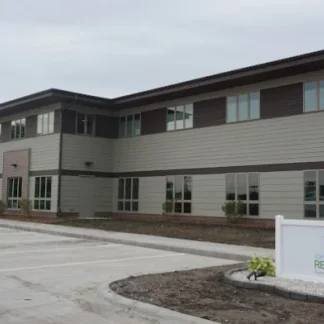Children and Families
Children and Families is a private rehab located in Fort Dodge, Iowa. Children a...
Community & Family Resources (CFR) Fort Dodge is an accredited dual diagnosis mental health and addiction treatment center in Fort Dodge, IA. At CFR, individuals receive personalized and evidence based addiction treatment services in a nurturing and supportive environment.
Community & Family Resources is committed to providing individualized care through their comprehensive range of services tailored to meet the unique needs of each person on their journey to recovery.
CFR understands the critical importance of a safe and supportive environment during the detoxification and withdrawal process. Their specialized medical staff provides round the clock monitoring and offers medical interventions to manage withdrawal symptoms and ensure a comfortable transition into the next phase of treatment.
Their residential treatment program provides a structured and supportive environment for individuals to focus on their recovery. Through a combination of therapy, counseling, and holistic approaches, residents receive the necessary tools and support to address underlying issues and develop sustainable coping strategies.
CFR also provides intensive outpatient programming (IOP) as a flexible treatment option for those who require ongoing support while maintaining their daily responsibilities. The program includes individual counseling, group therapy, educational sessions, and relapse prevention strategies to promote lasting recovery.
Contact us for more information: (515) 576-7261

Connect with Community & Family Resources - Fort Dodge by calling their admissions team directly.
(515) 576-7261 Website Get DirectionsResearch clearly demonstrates that recovery is far more successful and sustainable when loved ones like family members participate in rehab and substance abuse treatment. Genetic factors may be at play when it comes to drug and alcohol addiction, as well as mental health issues. Family dynamics often play a critical role in addiction triggers, and if properly educated, family members can be a strong source of support when it comes to rehabilitation.
Group therapy is any therapeutic work that happens in a group (not one-on-one). There are a number of different group therapy modalities, including support groups, experiential therapy, psycho-education, and more. Group therapy involves treatment as well as processing interaction between group members.
Group therapy is any therapeutic work that happens in a group (not one-on-one). There are a number of different group therapy modalities, including support groups, experiential therapy, psycho-education, and more. Group therapy involves treatment as well as processing interaction between group members.
Children and Families is a private rehab located in Fort Dodge, Iowa. Children a...
AA – Alcoholics Anonymous is a non-profit rehab located in Fort Dodge, Iowa. AA ...
Community & Family Resources provides treatment of substance abuse, problem ...
Community and Family Resources - STARS Adolescent Program is a non-profit rehab ...